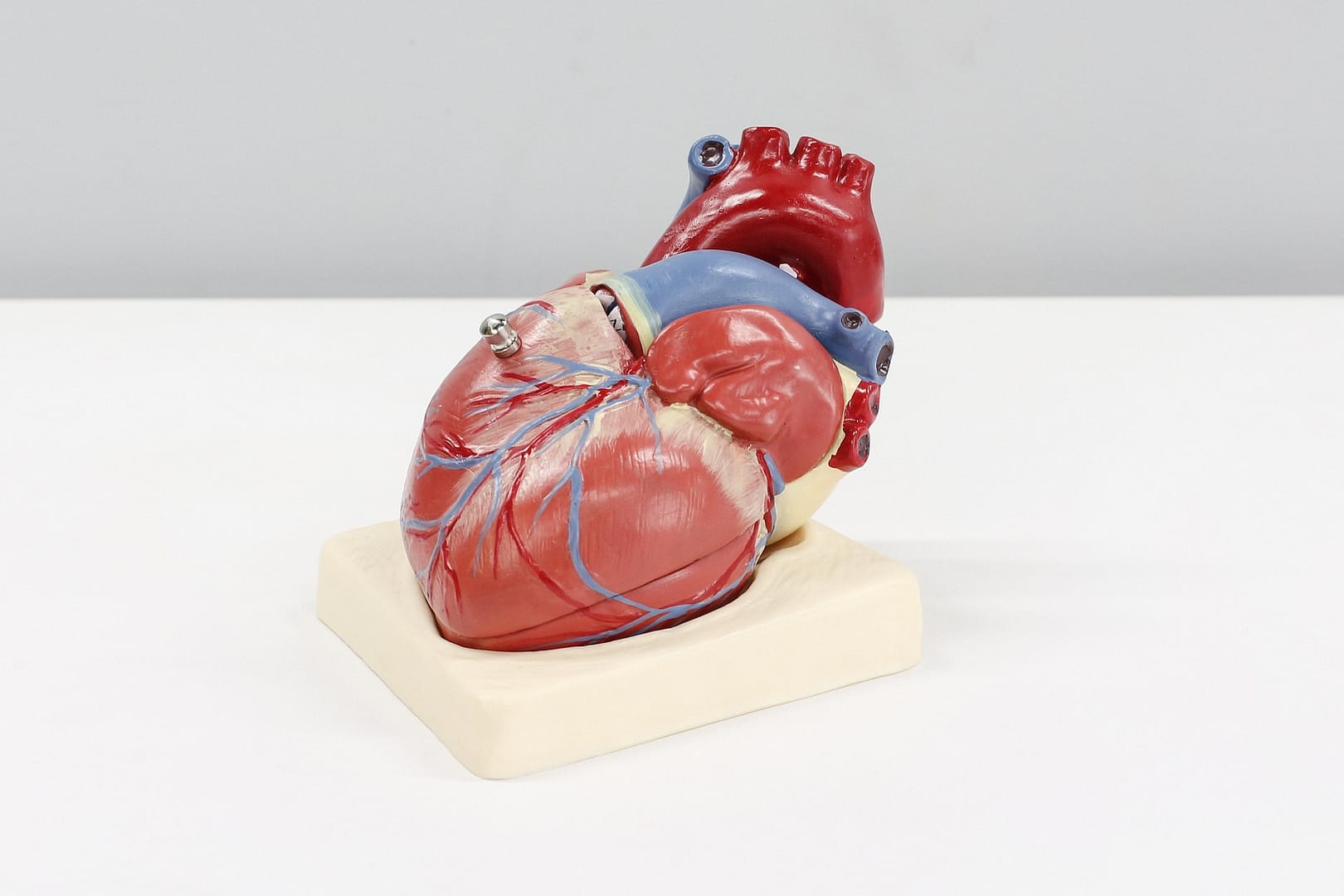When it comes to spinal cord injuries, we often focus on the immediate physical challenges they present. Yet, beyond the obvious impairments in mobility and sensation, there’s a less-discussed but equally significant aspect to consider: the impact on cardiovascular health. In this article, we will delve into the intricate relationship between spinal cord injuries and cardiovascular well-being, exploring how these injuries affect the cardiovascular system and blood pressure.
The Central Highway: Understanding the Spinal Cord
To comprehend the effects of a spinal cord injury on cardiovascular health, we must first grasp the vital role the spinal cord plays in our body. Picture the spinal cord as a central highway for communication between the brain and the rest of the body. It’s a complex bundle of nerves that transmits signals controlling movement, sensation, and autonomic functions such as heart rate and blood pressure.
A Disrupted Connection
A spinal cord injury disrupts this critical communication system. It can result from various causes, including accidents, falls, or medical conditions. Regardless of the cause, the consequences on cardiovascular health are profound.
The Autonomic Nervous System
The autonomic nervous system is responsible for controlling many involuntary functions of the body, including heart rate and blood pressure. It consists of two branches: the sympathetic nervous system, which increases heart rate and blood pressure, and the parasympathetic nervous system, which does the opposite, promoting relaxation and lower blood pressure.
Sympathetic Dominance
When a spinal cord injury occurs, the balance between the sympathetic and parasympathetic nervous systems can be disrupted. In most cases, sympathetic dominance prevails. This means that the body’s “fight or flight” response becomes more prominent, causing an increase in heart rate and blood pressure. This heightened state of arousal can lead to chronic hypertension and cardiovascular complications.
Orthostatic Hypotension
Another common issue faced by individuals with spinal cord injuries is orthostatic hypotension. This is a sudden drop in blood pressure that occurs when transitioning from a lying or sitting position to standing. The typical mechanism that adjusts blood pressure when changing positions is impaired due to the spinal cord injury. As a result, people may experience dizziness, lightheadedness, or even fainting upon standing.
Cardiovascular Health: The Silent Challenge
As the effects of spinal cord injury on cardiovascular health unfold, we realise that it’s a silent challenge. While the physical aspects of paralysis are evident, the cardiovascular issues may not be as readily apparent. However, they are no less significant.
A Lifelong Commitment
Once a spinal cord injury occurs, managing cardiovascular health becomes a lifelong commitment. This includes regular monitoring of blood pressure and heart rate, as well as implementing strategies to minimise the risks associated with sympathetic dominance and orthostatic hypotension.
Strategies for Cardiovascular Health
So, how can individuals with spinal cord injuries safeguard their cardiovascular health? Let’s explore some effective strategies that can make a substantial difference in their well-being.
Medications
Medications can help control blood pressure and heart rate. Beta-blockers, for example, are often prescribed to counteract the excessive sympathetic activity. However, these should be used under the guidance of a healthcare professional, as they may have different effects based on individual needs.
Physical Activity
Engaging in adapted physical activities is crucial for cardiovascular health. While the type and intensity of exercise may differ from those without spinal cord injuries, it’s vital to find a regimen that works. Physical therapists and healthcare providers can assist in creating tailored exercise plans.
Positional Changes
Managing orthostatic hypotension involves making gradual positional changes. Individuals may use tilt tables or tilt-in-space wheelchairs that allow them to change positions slowly, reducing the risk of sudden drops in blood pressure.
Adequate Hydration
Maintaining proper hydration is essential, as dehydration can exacerbate orthostatic hypotension. Regular fluid intake can help stabilise blood pressure.
Lifestyle Adjustments
Lifestyle modifications can also contribute to cardiovascular health. Avoiding tobacco, limiting alcohol consumption, and maintaining a balanced diet can have a positive impact on overall well-being.
The Importance of Rehabilitation
Rehabilitation plays a pivotal role in helping individuals with spinal cord injuries manage their cardiovascular health. Through a multidisciplinary approach, rehabilitation teams work to improve mobility, independence, and overall well-being.
The Role of Physiotherapy
Physiotherapists are central figures in the rehabilitation process. They develop tailored exercise programs that address the specific needs and limitations of each individual. These exercises not only promote cardiovascular health but also enhance strength and flexibility.
Occupational Therapy
Occupational therapists assist individuals in regaining independence in daily activities. This includes strategies to manage orthostatic hypotension during transfers and maintaining a healthy, active lifestyle.
Emotional Support
Psychologists and counsellors are integral to the rehabilitation process as well. The emotional impact of a spinal cord injury can be profound, and having a support system in place is crucial for mental and emotional well-being.
The Mind-Body Connection
The mind-body connection is undeniable in the realm of spinal cord injuries and cardiovascular health. Stress and anxiety can exacerbate sympathetic dominance, leading to elevated blood pressure and heart rate. Techniques such as meditation, mindfulness, and relaxation exercises can help individuals manage stress and promote cardiovascular well-being.
The Road Ahead
In the journey to understand the connection between spinal cord injury and cardiovascular health, we’ve uncovered a complex relationship that requires ongoing attention and care. From the moment of injury, individuals must adapt to new challenges and embrace a commitment to their well-being.
Making a Serious Injury Claim with National Claims
At National Claims, we understand the profound impact that a serious injury can have on your life. We are here to guide you through the process of making a claim to ensure you receive the compensation you deserve. In the case of a spinal cord injury,, it’s important to consider not only the immediate medical needs but also the long-term implications for your cardiovascular health. Let’s explore how National Claims can assist you in making a serious injury claim and conclude our journey through the intricate connection between spinal cord injury and cardiovascular health.
Why Choose National Claims?
National Claims is a leading personal injury law firm in the UK, specialising in serious injury claims. We have a team of experienced solicitors who are dedicated to providing comprehensive support to individuals who have suffered life-altering injuries like spinal cord injuries.
The Consultation
Our process begins with a consultation. We understand that every injury is unique, and the circumstances surrounding each case vary. During this consultation, we’ll assess the details of your injury, including its impact on your cardiovascular health. We’ll also discuss the potential long-term effects, such as hypertension and orthostatic hypotension, that may require ongoing medical care and accommodations.
Building Your Case
Once we have a thorough understanding of your case, we will work to build a strong and compelling claim. This involves collecting evidence, medical records, and expert opinions to demonstrate the full extent of your injuries and their impact on your life.
Ongoing Support
Your journey doesn’t end once the claim is settled. National Claims provides ongoing support to ensure you have access to the necessary resources for your continued recovery. We can help you connect with rehabilitation services, medical professionals, and other support networks to address the cardiovascular challenges posed by your spinal cord injury.

Conclusion
In conclusion, the connection between spinal cord injury and cardiovascular health is a complex one, often overlooked but no less significant. Through medical intervention, lifestyle adjustments, and ongoing rehabilitation, individuals can lead fulfilling lives despite the obstacles they face.
National Claims is here to support those who have experienced serious injuries, such as spinal cord injuries. We understand the importance of addressing the long-term impact on cardiovascular health and are committed to securing the compensation you deserve. Our experienced solicitors will guide you through the process, from the initial consultation to negotiating with insurance companies and providing ongoing support.
Remember, the journey to recovery may be challenging, but you’re not alone. With the right support and a strong legal team by your side, you can move forward with confidence, knowing that your well-being is a top priority. At National Claims, we’re here to help you take the next steps towards a brighter future.
Contact us now and start your claim with the help of one of our claims specialists.
Click below to see why we are one of the most trusted claims management companies in the UK.

We’re proud of our excellent customer reviews
We thrive on delivering exceptional service and ensuring our clients’ satisfaction. Don’t just take our word for it. Check out some of our independent reviews to see what our clients have to say.
Excellent

This firm is excellent, they sorted out my car pay out and injury claim very fast, they always communicate with you all the time.

My accident case was dealt with confidence and with great result of the outcome, especially James kept me informed all the time.

I was very impressed at the way my inquiry was treated. I was listened to attentively and everything I needed to know was explained to me.






